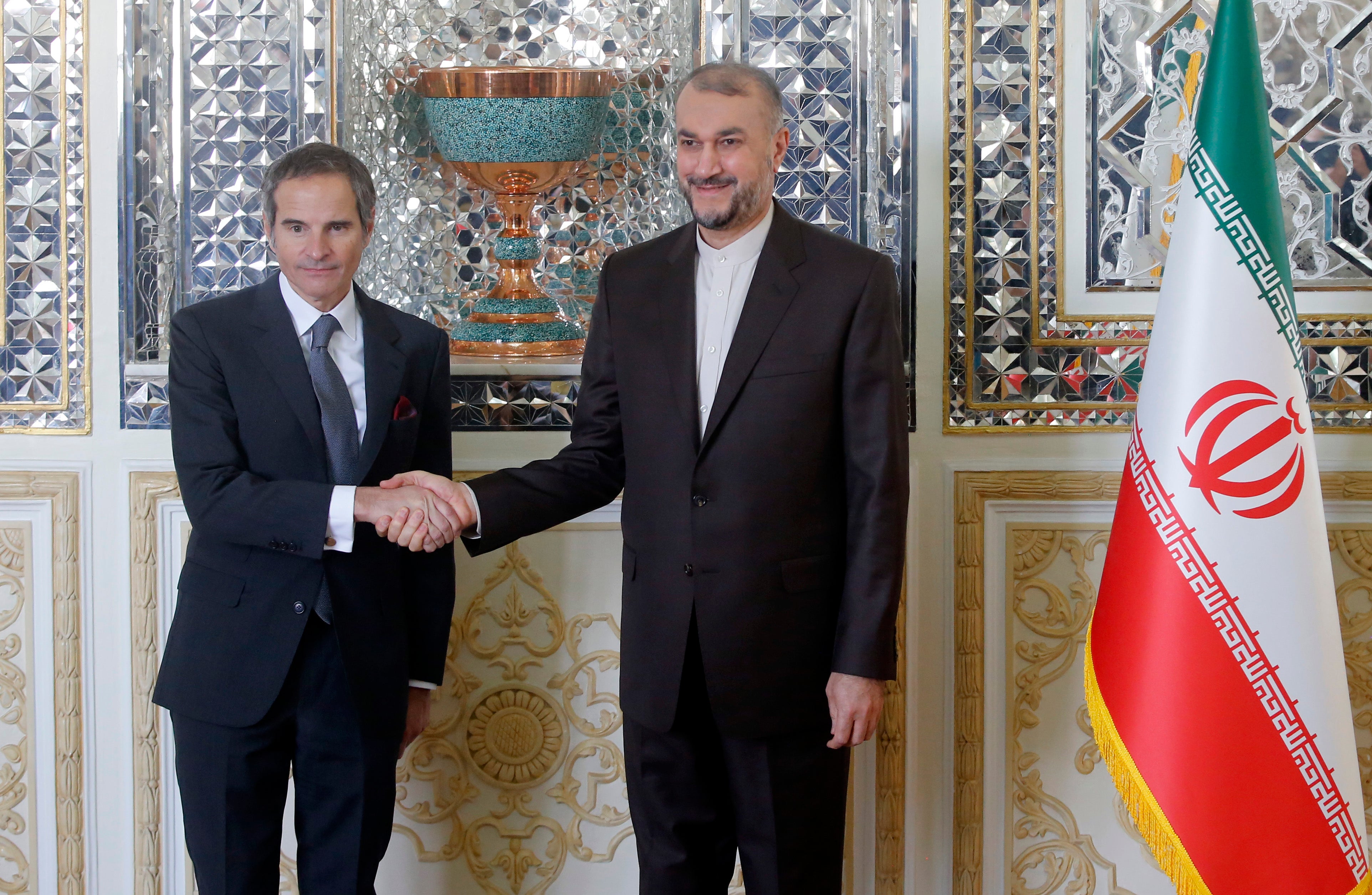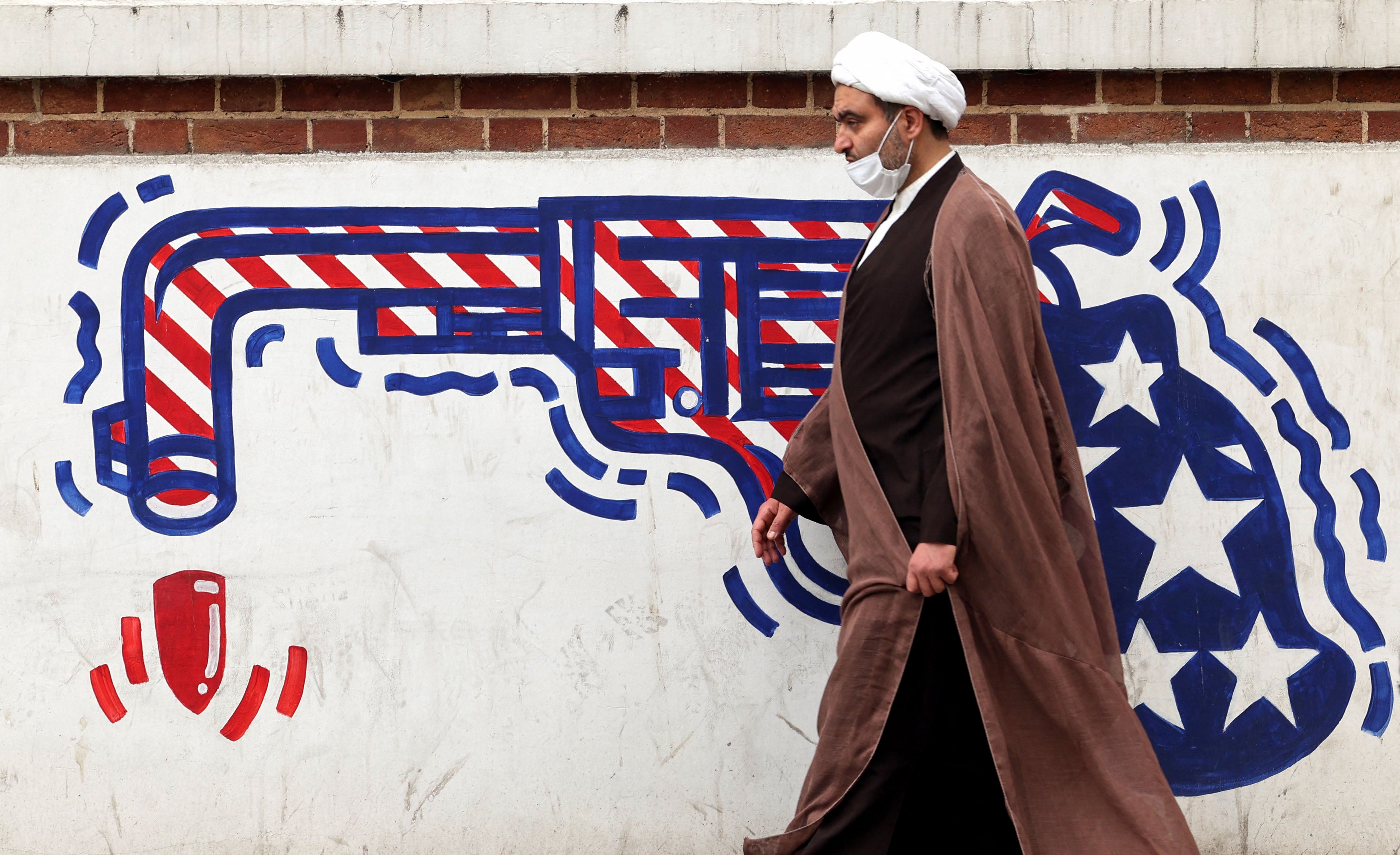Why Iran has finally decided to release Nazanin Zaghari-Ratcliffe and Anoosheh Ashoori
Iran nuclear deal and impact of Russia’s war against Ukraine on global energy supplies seen as main factors
Your support helps us to tell the story
From reproductive rights to climate change to Big Tech, The Independent is on the ground when the story is developing. Whether it's investigating the financials of Elon Musk's pro-Trump PAC or producing our latest documentary, 'The A Word', which shines a light on the American women fighting for reproductive rights, we know how important it is to parse out the facts from the messaging.
At such a critical moment in US history, we need reporters on the ground. Your donation allows us to keep sending journalists to speak to both sides of the story.
The Independent is trusted by Americans across the entire political spectrum. And unlike many other quality news outlets, we choose not to lock Americans out of our reporting and analysis with paywalls. We believe quality journalism should be available to everyone, paid for by those who can afford it.
Your support makes all the difference.Two British-Iranian citizens held for years in detention inside Iran left the country on Wednesday amid fast-moving developments that suggest an imminent restoration of the 2015 nuclear deal and possible geopolitical realignments in the wake of Russia’s invasion of Ukraine.
Nazanin Zaghari-Ratcliffe and Anoosheh Ashouri flew out of Tehran’s Imam Khomeini International Airport – they are heading to the UK via Oman – a day after their passports were returned to them by the Iranian regime.
Ms Zaghari-Ratcliffe, a 43-year-old charity worker, had spent four years in prison and a year under house arrest after being arrested six years ago on what appeared to be trumped-up espionage charges. Mr Ashoori, a 67-year-old retired businessman, had also been in prison for nearly five years on specious charges of having been a spy for “Mossad”.
Iran had demanded the UK return around £400m in debt owed to Iran in a 40-year case over the non-delivery of tanks. No 10 said the money had been repaid but ringfenced for the purchase of humanitarian goods.
Iran’s semi-official news agency Fars reported that the UK had released the frozen assets and handed over an unnamed jailed Iranian.
The release of the de facto hostages comes following strong signals that year-long talks in Vienna over the revival of the Joint Comprehensive Plan of Action were on the verge of success.
The JCPOA eased sanctions and financial restrictions on Iran in 2015 in exchange for the curtailing of its nuclear programme. But former US president Donald Trump withdrew from the deal and reimposed sanctions in 2018, prompting Iran to dramatically escalate its production of nuclear material
“I think we’re on the verge of a deal with Iran,” Rafael Grossi, director general of the International Atomic Energy Agency, told France 24 on Tuesday.

Raised hopes of a deal come just days before Persian New Year, a holiday that will shutter Iran’s government and commerce for several weeks, giving Tehran more time to amass fissile material.
Iran already has enough nuclear material to build several atomic bombs if it were to weaponise its supply of enriched uranium and break out of its treaty obligations.
“What we’re seeing is a piecemeal effort to partially resolve some of the challenges between Iran and the international community,” said Sanam Vakil, a Middle East expert at Chatham House.
“The eagerness for a deal is to get Iran’s programme back to where it was. Without the deal Iran is perilously close to crossing over. And the consequence of that would spill over into the region,” she told The Independent.
Russia had reportedly held up a conclusion to the deal over concerns that sanctions imposed in the wake of its war against Ukraine would impede its ability to implement terms of the arrangement.
The invasion of Ukraine prompted a raft of global sanctions on oil and gas-exporting Russia. The resulting spike in energy prices worldwide has hastened moves to get Iranian oil and gas back into global markets.
“I think Iran is in desperate need [of bringing] these negotiations to an end,” said Mansour Borj, of the group Article18, which advocates for religious freedom in Iran. “Despite putting up a brave face and pretending things are going their way, they’re desperate to get the cash.”
Iran reportedly signed a 20-year $500m (£382m) deal with an unnamed but likely China-based firm for the recovery of oil from its Pars Gas Field in the Persian Gulf, the CEO of the National Iranian Oil Company, Mohsen Khojastehmehr, told state television on Tuesday.
Still, industry experts say Iran’s energy supplies are already priced into the market by traders anticipating the restoration of the JCPOA.
“Rehabilitating Iran’s energy programme is a longer term project,” Ms Vakil added.
Even if concerns over Iran’s nuclear programme are eased and the JCPOA is revived, tensions between Tehran and the US will likely continue. US Iran envoy Robert Malley has called on Tehran to release numerous Iranian Americans held in prison as well as disclose the fate of Robert Levinson, a former FBI agent who disappeared in Iran and is presumed to have died.

Washington also remains irked over Iran’s continued missile technology advancements and its financing, recruitment and training of allied militias around the Middle East.
Despite the easing of strains between Tehran and western powers involved in the nuclear talks, hostility between Iran and Israel, which is opposed to the deal, continues at a fever pitch.
Israeli media reported that the country suffered a massive cyberattack on government and utility websites days after Iran claimed it had foiled an Israeli attack on a mountainside site where it enriches uranium.
Late last week Iran launched ballistic missiles at a site near a US base in northern Iraq that Tehran claimed was hosting an Israeli intelligence outpost, just days after Israel reportedly killed two officers of Iran’s Revolutionary Guard at a base in Syria.
Neither the release of two British citizens nor the imminent restoration of the nuclear deal will likely improve Iran’s domestic human rights track record, analysts say. Mr Borj noted that hundreds of prisoners of conscience remain in Iranian prisons, including members of religious minorities.
“The pressure from outside may be easing with this deal, but the state of paranoia and waves of crisis will continue,” he said. “We haven’t seen any change of behaviour.”




Join our commenting forum
Join thought-provoking conversations, follow other Independent readers and see their replies
Comments